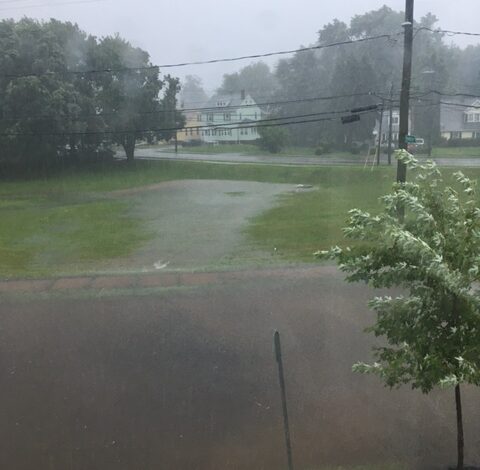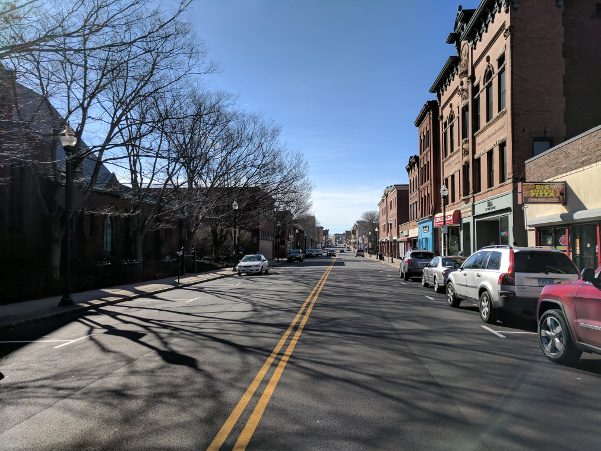Larger Action Needed on Housing and Homelessness
It is always welcome news when housing is made available for those who can least afford it. The recent news about new housing opportunities going up on North Street is certainly movement in the right direction, and the people of good conscience who labor to help others deserve credit for their work.
But, it is also true that there is good cause for serious discussion about some troubling facts on housing and homelessness in New Britain. One of our city’s constant and long-term problematic threads has been a tendency for our city’s political class to lavish talk on small positive steps being made, while problems that, in the big picture, overwhelm those small incremental gains are systematically neglected, or even actively made worse. This is true of many things occurring in New Britain, but housing is certainly among them.
While Erin Stewart thanked her father, former mayor Tim Stewart, for taking action to address homelessness, the truth is that his time in office is actually actually not, on the whole, something to be proud of when it comes to housing.
Tim Stewart was the mayor for most of the period between the 2000 and 2010 censuses. During that time, while the population of the city grew, the number of occupied housing units actually decreased. The city’s population increased from 71,538 people in 2000 to 73,206 in 2010. But that increased population of 1,668 more people squeezed themselves into 400 fewer housing units, as the number of occupied units shrank from 28,558 in 2000 to 28,158 in 2010.
These facts betray a stark reality of life for hundreds, if not thousands, of people in New Britain. More people with fewer occupied housing units meant that families were left doubling and perhaps even tripling up in apartments in order to have roofs over their heads. This of course would be especially true of families with children. It goes without saying that parents will do whatever they have to do so that their children have a warm and sheltered place to sleep.
A major driving force behind this happening is the fact that this same 2000 to 2010 census period also saw a massive increase in the amounts of rents being charged in the city. The median rent in New Britain went from $574 in 2000 to $831 in 2010. That was an astounding 44% increase, almost twice the rate of inflation. This pushed the cost of median rents for New Britain residents from 24.9% of median household income in 1999 to 35.6% in 2010. These numbers have leveled off to similarly high levels since then. The statistics show that apartments that people could have lived in were left vacant, and a driving reason why is that the spike in rents made housing unaffordable for many people.
While the press and political discussion about homelessness focuses on the very visible single adult homeless, who do desperately need help, there are thousands of more people in our city, including many families with children, who live on the edge, struggling in silence because of the lack of availability of affordable housing. In 2014, the incomes of 36.9% of New Britain renters were less than $20,000. That income means living on a mere $1600 a month. Families is at this low income level paid 33.4% of their meager incomes in rent.
While there are national economic issues being debated in this presidential election year that touch on things that have acutely affected New Britain’s economic prospects over the past several decades, we, in New Britain, also cannot turn away from the local dynamics that have make life needlessly harder for city residents.
For too long, the politics of our city has been laced with a strand of thought that, by eliminating the places where poor people live, the apartments with low rents, the poor people of New Britain would simply disappear. In other words, trying to eliminate poverty by removing the poor. This line of thought has typically been tied to not-so-subtle racist overtones.
Also, there has been a significant element of classism in our community, as policies that benefit the owners of rental property over their tenants have typically held sway in our local politics. It is not hard to see that eliminating lower rent housing would result in higher overall rents and expand the profitability of the rental property business at the expense of tenants.
In the end, all of this has just left New Britain worse off. The percent of our city’s families living below the poverty line went from 13.3% in 2000 to 18.3% in 2014. And while 20.3% of families with children were below the official poverty line in 2000, that proportion had jumped to 26.8%, more than one in four, by 2014.
Our city needs a more inclusive and forward thinking housing policy. We need to have policies and politics that recognize that making quality housing in decent neighborhoods affordable for everyone strengthens our local economy and community for people of all walks of life, not for just people of modest means. To make this better future a reality, our community needs thousands more units in the city to be truly affordable. Our city does have tools to get this done within the resources available to us.
The first step, however, is the come together as a community and decide that it must be done.
Tim O’Brien is former Mayor of New Britain and a member of New Britain Independent Board of Directors


